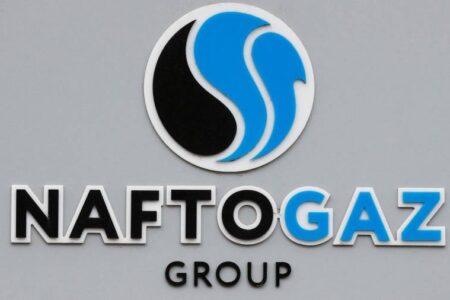Ukraine’s state energy company has been in talks with ExxonMobil, Halliburton and Chevron about projects in the war-torn country as Kiev looks to attract foreign investment to its energy sector.
Negotiations with major US fossil fuel players are part of a strategic push to increase natural gas production that Ukrainian officials believe could help replace Russian supplies to Europe in coming years, and come after months of Russian bombing of Ukraine’s energy grid.
Oleksey Chernyshov, CEO of Naftogaz, Ukraine’s national energy company, said he had meetings in recent days in Washington with Halliburton and ExxonMobil. He said he met with Chevron’s leadership in January.
“We understand that it is difficult for private companies to get involved during a war,” he told the Financial Times. We are working on insurance mechanisms to protect property rights. Sure, it will take some time. But we do not wait – we go forward.
Chernyshov said he has also met with White House officials, members of Congress and senators from both parties in recent days in an effort to drum up more political support for U.S. investment in Ukraine’s energy sector.
Ukraine’s energy infrastructure has been bombarded by Russian missiles since Vladimir Putin ordered a full-scale invasion of its neighbor in February last year. Russian bombing targeted the country’s energy infrastructure and also destroyed the country’s main refinery as part of an effort to weaken the economy.
Ukraine has long promoted its exploration and production potential, emphasizing the near-term prospects for increasing shale and unconventional onshore production in Kharkiv, Poltava and Transcarpathia, in the west of the country. Naftogaz said it hoped to benefit from American expertise in the kind of onshore shale oil exploration that has made America the world’s largest producer of oil and gas.
The drop in Ukrainian energy demand amid the economic turmoil that followed the invasion means that the country may also have reserves of natural gas that can be shipped to Europe, as well as storage facilities that can be used as the block builds up before winter.
Ukraine also boasted strong offshore natural gas prospects in the Black Sea off Crimea. But these remain prohibited until after the war. The Russian Navy took control of much of Ukraine’s territorial waters after the invasion and closed Ukrainian ports, allowing only grain to exit under a UN agreement.
Naftogaz hopes to sign a contract soon with Halliburton that will help boost production to a target of 13.5 billion cubic meters this year, a jump of about 1 billion cm from 2022 levels. Chernyshov said it was difficult to stick to a long-term production target until the war was over.
“It’s a lot. And in order to achieve that, we may need serious service expansion and technology drivers that Halliburton can provide,” Chernyshov said. We want them to expand (their presence) exponentially. We seriously want them there — boots on the floor.”
The Oilfield Services Group was among the first international companies to enter Iraq after the US invasion in 2003. It has a limited presence in Ukraine. Halliburton was not immediately able to comment.
However, talks with Exxon and Chevron — oil producers that do not have operations in the country — are still at an early stage and will take longer to produce results. Naftogaz said it was open to a range of different arrangements.
“We will welcome them,” said Chernyshov. “We can do gas co-production together, PSA – Production Sharing Agreement – they can get a license and produce themselves, and we would welcome that.”
Chevron and Shell signed shale gas agreements with Ukraine many years ago, before the 2014 Maidan revolution, but pulled out after market conditions changed and Russia annexed Crimea and backed separatists in a war in the eastern Donbass region.
Exxon declined to comment on the talks. Chevron did not respond to a request for comment at the time of publication.
Additional reporting by Roman Olarchik in Kiev
